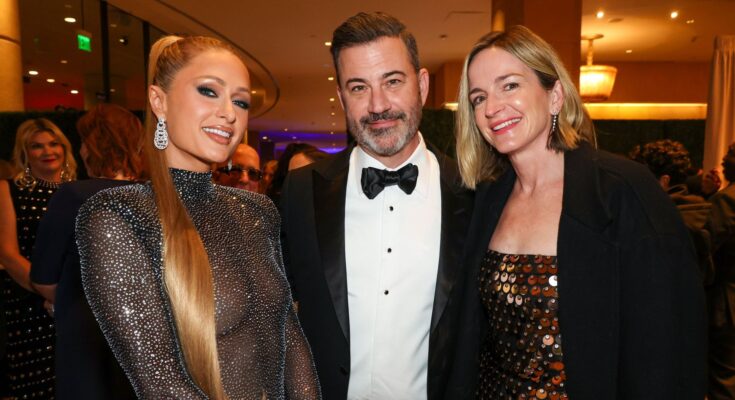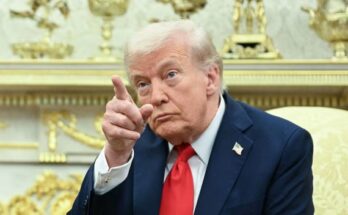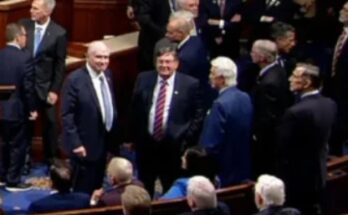On the evening of September 23, Jimmy Kimmel returned to his familiar spot behind the desk on Jimmy Kimmel Live! after a turbulent week that saw his show abruptly suspended by ABC. The hiatus, which began on September 17, came in response to a flurry of backlash from conservative commentators and political pundits following Kimmel’s controversial remarks regarding the suspect in the high-profile killing of conservative activist Charlie Kirk. The network’s decision to preempt the show ignited a wave of public debate, as well as speculation over how Kimmel and ABC would handle the mounting pressure and media firestorm.
Kimmel’s comments had sparked fierce criticism, particularly from right-wing media figures who accused the host of insensitivity and of politicizing a tragic event. In the days that followed, social media became a battleground of opposing opinions, with critics calling for accountability and supporters defending Kimmel’s right to speak freely, especially within the realm of satire and late-night commentary. The brief suspension highlighted the increasingly volatile intersection of politics, media, and comedy, a space where Kimmel has long operated with both sharp wit and unapologetic candor.
When the show returned, viewers tuned in with heightened anticipation. During his opening monologue, Kimmel addressed the controversy head-on with a tone that balanced gratitude, reflection, and defiance. He began by sincerely thanking his loyal audience for their continued support during the tumultuous week. He extended heartfelt appreciation to his colleagues across the late-night television landscape who had reached out to express solidarity, many of whom have themselves faced similar political blowback for daring to push boundaries or speak truth to power through comedy.
In a gesture that many found both surprising and mature, Kimmel also offered a word of thanks to his critics. Acknowledging the firestorm surrounding his comments, he noted that disagreement is a natural part of free speech and open discourse—and while he may not align with the views of those who called for his suspension, he respects the right of others to express dissent. The monologue struck a chord for its honesty, its grace, and its refusal to apologize for standing by convictions that Kimmel has long voiced on his show.
The entertainment industry responded swiftly and loudly. Within hours of the broadcast, messages of support flooded in from celebrities, fellow comedians, and public figures. Stephen Colbert, host of The Late Show, took to Instagram to share his backing for Kimmel, posting a backstage image of his fellow host and writing, “Welcome back, brother!”—a message that resonated as both personal and symbolic of the deep camaraderie that exists among the tight-knit community of late-night hosts. Colbert, who has also faced his share of political heat, reminded audiences that comedy can be a form of resistance and a way of making sense of a world often divided by ideology.
Actress Jennifer Aniston added her voice in support, reposting a candid photo of Kimmel backstage at his show, accompanied by a simple heart emoji. Though understated, the gesture carried emotional weight, signaling both affection and solidarity. Meanwhile, actor and director Ben Stiller chimed in with a warm welcome, joining a growing list of Hollywood figures who publicly celebrated Kimmel’s return and implicitly denounced the circumstances that led to his brief silencing.
Across social media platforms, the hashtag #WelcomeBackKimmel began trending, as fans, celebrities, and political commentators weighed in on the broader implications of the week’s events. For some, it was a moment to reflect on the fragile balance between free expression and public accountability. For others, it was a rallying cry against what they perceived as censorship rooted in partisan outrage.
Beyond the noise, one thing became clear: Kimmel’s return wasn’t just the resumption of a late-night talk show—it was a cultural flashpoint. It demonstrated the risks entertainers face when they choose to engage in political discourse, and the support they can receive when they refuse to back down in the face of organized opposition. It highlighted how late-night television remains one of the few spaces where comedy and current events collide in real time, often unfiltered, and sometimes uncomfortably.
In the end, Jimmy Kimmel’s comeback served as a reminder that comedy, at its best, isn’t just about laughter—it’s about truth-telling, about challenging power, and about creating space for uncomfortable conversations. Whether one agrees with his views or not, Kimmel stood firm, and in doing so, reaffirmed the role of the late-night host not just as an entertainer, but as a voice in the broader cultural conversation.



